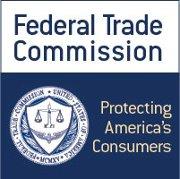
FTC Details Efforts to Protect Older Consumers in Report to Congress
A new report released today by the Federal Trade Commission details the agency’s comprehensive efforts to protect older consumers from fraud, identity theft, and other problems in the marketplace.
The report, Protecting Older Consumers 2017-2018: A Report of the Federal Trade Commission, outlines the FTC’s research, law enforcement, and education efforts aimed at protecting older Americans.
As part of its efforts to understand how fraud is affecting older Americans, the report includes new analysis of the FTC’s consumer complaint data from 2017 finding that older adults are good at reporting frauds they encounter. In 2017, older adults were more likely to report fraud than younger people, and in those reports, indicated less frequently that they had lost money. While younger consumers more frequently reported losing money in their complaints, this does not suggest that older consumers need fewer protections, the report notes. In fact, when older consumers—especially those 80 and over—reported losing money to fraud, they lost much more money than consumers in their twenties.
The report also highlights some of the top scams where older consumers are more likely to report losing money than younger age groups, such as technical support scams; business imposter scams; prizes, sweepstakes, and lottery scams; and family or friend imposter scams.
The report also focuses on key enforcement actions the FTC has taken to protect older Americans. These include a case involving Next-Gen, Inc., which the FTC and the State of Missouri alleged engaged in deceptive schemes that targeted or affected senior citizens with phony sweepstakes offers; a case against Genius Technologies, LLC, which the FTC alleged offered bogus computer technical support services that tricked consumers out of tens of millions of dollars; and a case against Health Research Laboratories, LLC alleging that the company deceived consumers with promises that its products could treat everything from arthritis to memory loss.
Finally, the report details the FTC’s outreach and education efforts through such programs as the Every Community Initiative, which examines the impact of fraud on certain populations of consumers, including older adults. As part of its consumer education work, the FTC offers a fraud prevention campaign targeted at older Americans that encourages people to talk about scams. The Pass it On campaign focuses on providing fraud prevention resources to older Americans so they can help protect their communities by sharing the information and materials with family and friends.
The Commission voted 5-0 to approve the report to Congress.
